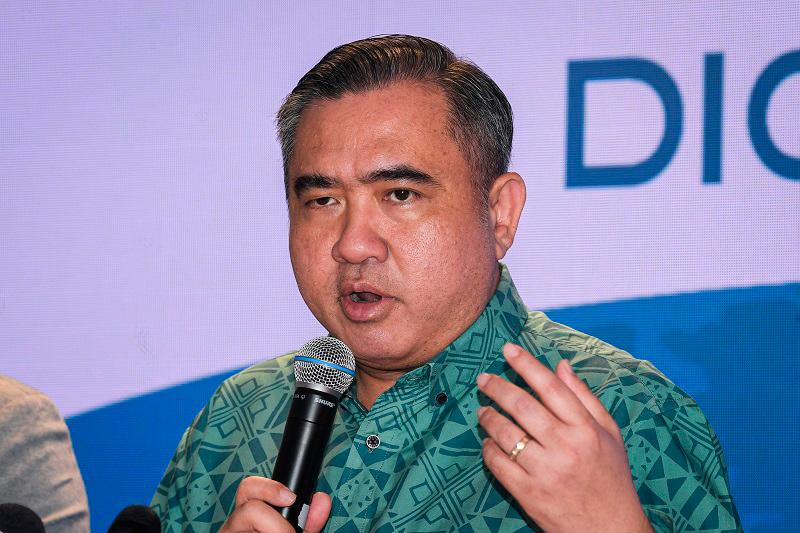KUALA LUMPUR: A pilot project for cargo delivery via Light Rail Transit (LRT) services has been launched in the Klang Valley as part of the efforts to strengthen logistics services and support the green transition.
Transport Minister Anthony Loke stated that the project, the first of its kind in Asia, is being implemented by Diolko, a sustainable last-mile delivery company, in collaboration with Prasarana Malaysia Berhad (Prasarana) from July this year until next month.
He said the project is also a strategic measure to meet the demand for more sustainable and efficient logistics services, aligning with the country’s environmental, social, and governance (ESG) goals.
“I am glad that we are leveraging this urban rail system, particularly the LRT, for goods delivery—an initiative I have discussed for some time, and it is now becoming a reality.
“I am confident that this project will attract the interest of multinational companies and alternative logistics service providers,“ he said at a press conference after visiting Diolko’s hub at the Putra Heights LRT Station here today.
Also present were Prasarana group chief executive officer Mohd Azharuddin Mat Sah and Diolko chief executive officer and co-founder Yoann Gueguen.
Loke said that the technology that Diolko offers has the potential to transform the transportation sector into a more sustainable model in terms of reducing carbon emissions while encouraging innovation through public-private collaboration.
He said the project aims to demonstrate that delivery via LRT is feasible and holds significant potential for expansion, offering efficient and eco-friendly services to tackle traffic congestion and carbon emissions.
Meanwhile, Gueguen said that Diolko is operating at a capacity of 2,500 parcels per month and plans to handle up to 75,000 parcels monthly within the next six months.
“Our journey began in the Klang Valley, leveraging the area’s robust public transportation infrastructure to develop an efficient and sustainable last-mile delivery solution.
“We are proud of the significant progress made, helping our customers collectively reduce carbon emissions by 70 per cent while also alleviating traffic congestion in the city,“ he said, adding that the project is the company’s commitment to revolutionising the urban logistics system by integrating the Rapid KL rail system at key stations, including Putra Heights Station (Sri Petaling LRT Line), Ara Damansara Station (Kelana Jaya LRT Line), and Awan Besar Station (Sri Petaling Line).
According to him, the integration of virtual hub technology and electric vehicles enables the handling of large volumes of goods, reduces users’ carbon footprint, and meets sustainability targets.
He added that the company intends to expand this innovative model to other cities in Malaysia and across ASEAN, including exploring the possibility of cross-border deliveries, such as connecting the Johor Bahru and Singapore LRT systems, which would attract more business opportunities.









